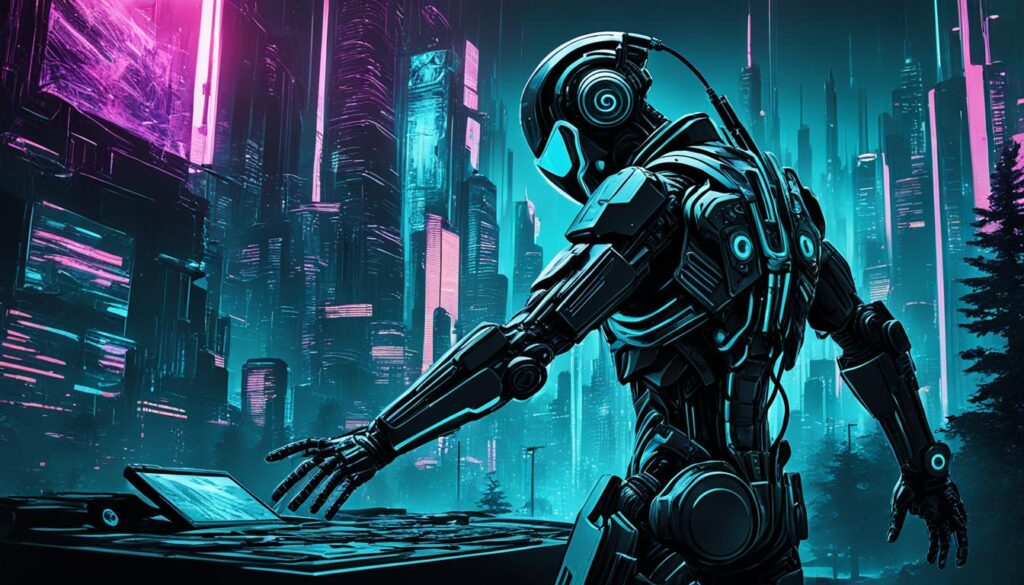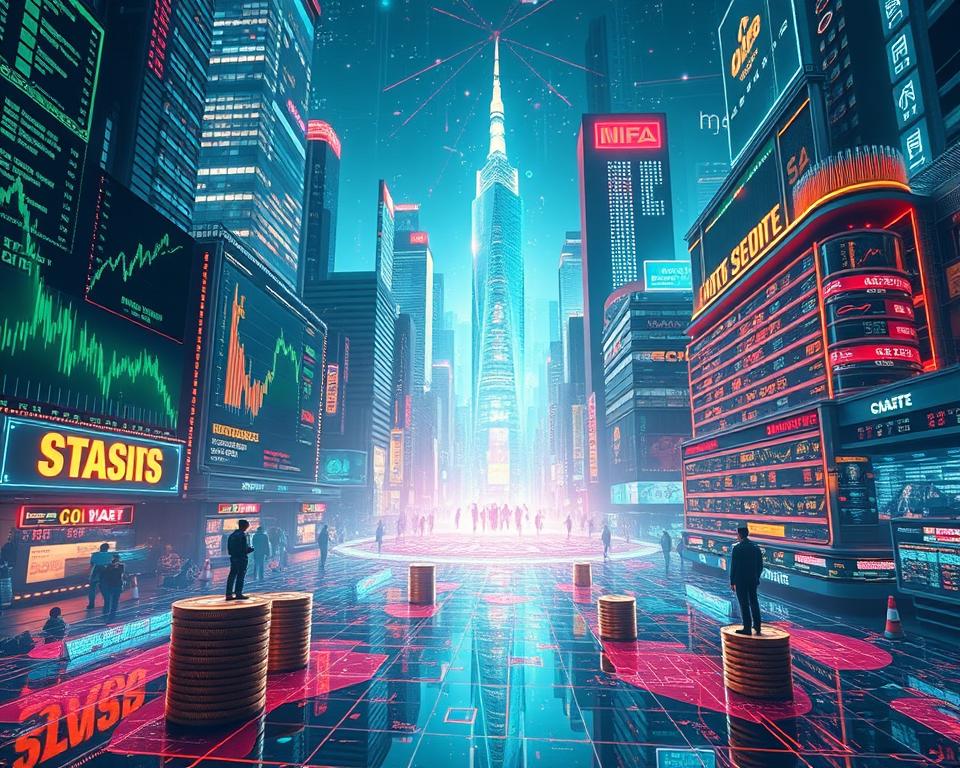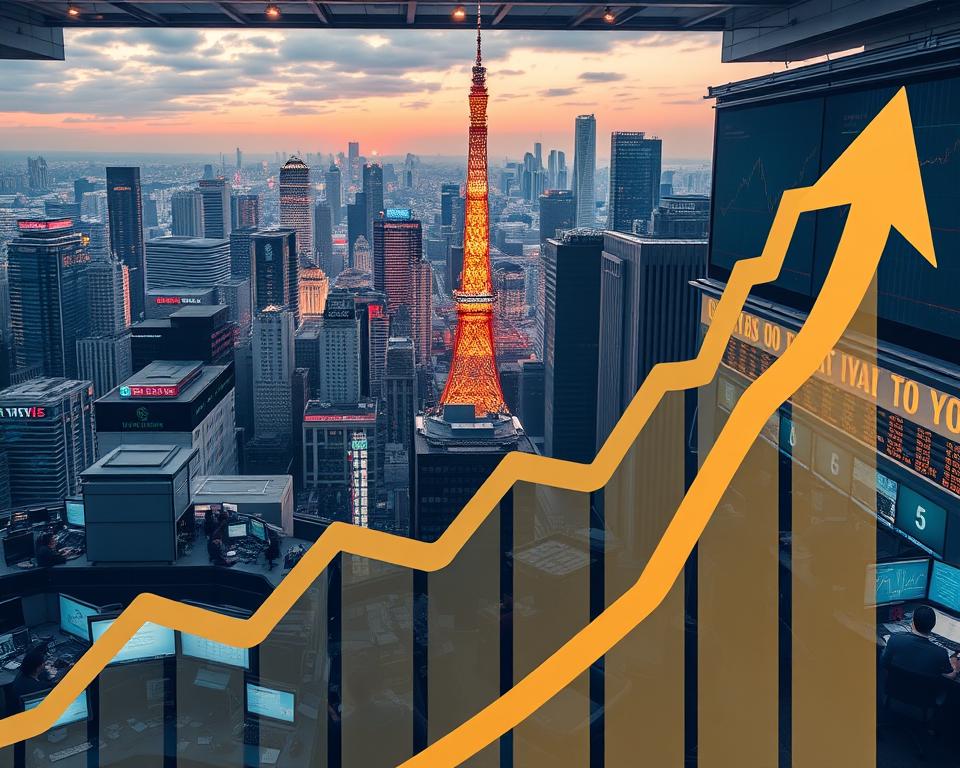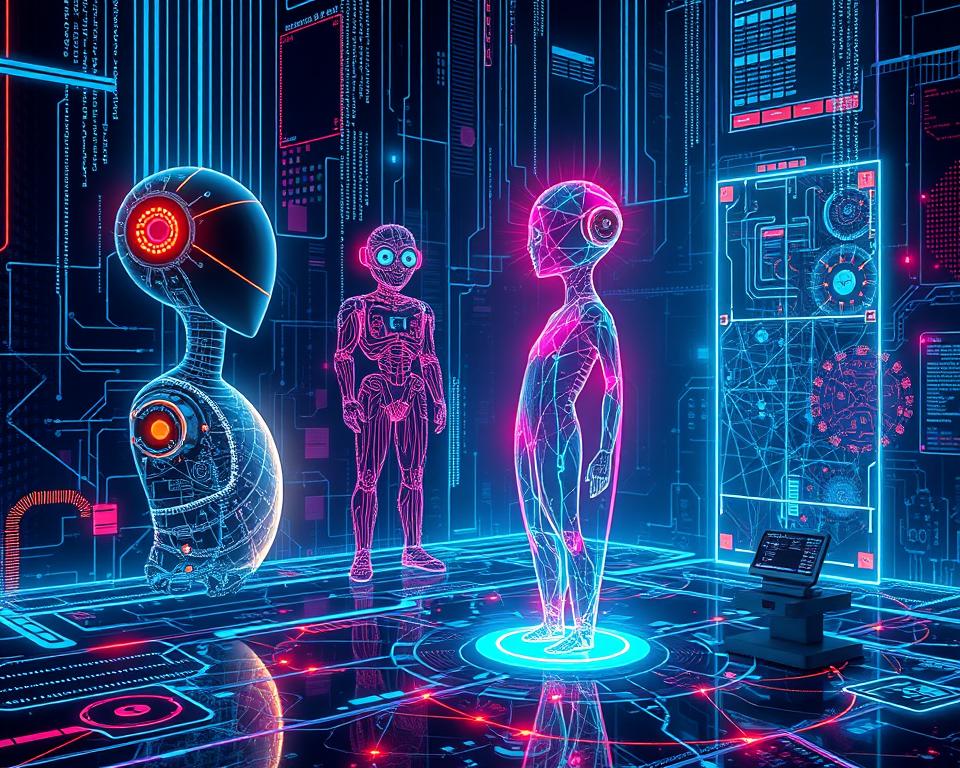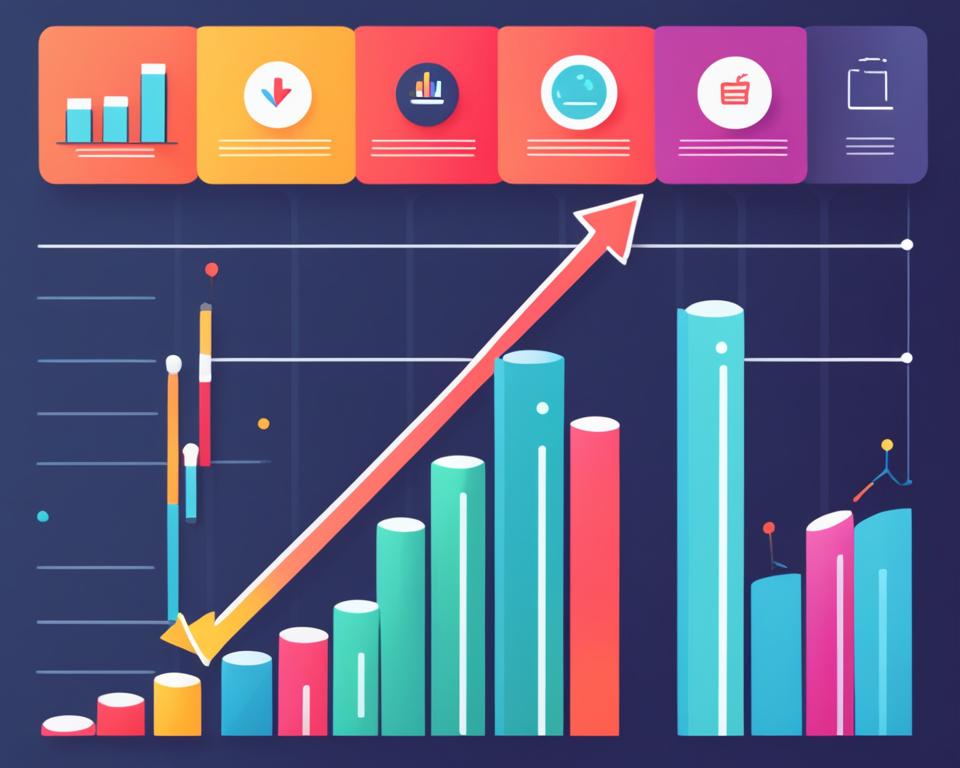As we navigate through the roaring currents of the digital revolution, it’s becoming increasingly evident that the wave of technological advancement isn’t lifting all boats. What we once viewed as the silver bullet for the world’s problems is now a source of divisive concern. We are witnessing the unforeseen consequences that come with leaping tech strides: a growing chasm that threatens to leave parts of humanity behind. This movement raises pivotal questions about the future of humanity and our growing tech dependency, echoing in the halls of both Silicon Valley and stock shelters of Wall Street.
We stand on the intersection where optimism for a tech-enabled utopia meets the skepticism of an isolated dystopia. It is in this junction that we must look for answers that reconcile the disparities emerging from radical tech escapism. The idea of private sector saviors using their wealth to combat global challenges fades, as self-preservation tactics trump collective welfare. Can we redirect this route toward one that inclusively benefits society, or will the collateral damage of our digital escapades be our undoing?
Key Takeaways
- The paradox of progress: how the promise of technology can inadvertently deepen societal divides.
- Examining the “Mindset” of isolationist strategies among the wealthy against global challenges.
- Exploring the social implications of elite tech escapism and its potential to disconnect humanity.
- Underlining the importance of scrutinizing the moral trajectory of our technological advancement.
- Debating the feasibility of creating a digital future that fortifies rather than fractures the social impact on communities.
- Addressing the critical need for balance in our increasing tech dependency to safeguard the collective future of humanity.
Unmasking the Mindset: Billionaires and their Tech Escapism
We are witnessing a discernible shift among the tech elite, a movement towards apocalyptic preparation and a bid to architect a digital future—one in which technological isolation is becoming increasingly normative. This burgeoning ethos portends an intensifying economic disparity, crystallizing a fracture between those who can afford to evade worldly woes and those who cannot.

Consider the gestures of the affluent: magnates are no longer looking simply to innovate but to insulate. From Jeff Bezos’ interstellar aspirations to Peter Thiel’s South Pacific sanctuary—these are not mere business ventures but bets against societal collapse. Mark Zuckerberg’s Metaverse represents a parallel; it’s a pivot to virtuality where human grandeur and imperfections can be distilled into codes and avatars.
Where does this leave us? We delve into a reflection, an exploration to decipher the implication of such a divide in our shared fabric of existence.
Is this the tech escapist “Mindset” becoming our society’s refuge? A voyeuristic onslaught to transcend human limitations, while our collective toils echo unheard?
The acts of preparation undertaken by these individuals speak volumes about their worldview—a testament to the notion that material power now attempts to ascend physical continuity and moral responsibility.
| Individual | Form of Escapism | Perceived Outcome |
|---|---|---|
| Jeff Bezos | Space migration | Humanity’s expansion into space, potentially relieving terrestrial constraints |
| Peter Thiel | New Zealand compound | A secure retreat amidst potential geopolitical or environmental crises |
| Mark Zuckerberg | Metaverse development | Shifting human interaction into virtual spaces, redefining social constructs |
Yet, an introspective query surfaces: at what juncture does this digital dominance transmute from safeguard to seclusion? How can we reconcile the profound gulf that separates us from an economic disparity so extreme, it seeds a technological isolation previously unfathomable?
Together, we confront these epoch-defining challenges—unmasking and understanding the emerging “Mindset” before the prospect of collective amelioration slips entirely from grasp, entrapped within a circuitry labyrinth of escapism.
The Disruption of Social Fabric: Civic Concerns in the Digital Age
In our modern tapestry of society, the threads that once tightly bound us together are increasingly frayed by the digitization of our lives. We, the collective digital citizenry, must grapple with the dichotomy that technology presents — serving as a beacon of civic innovation while simultaneously contributing to social disconnection and societal harms. Our digital life, rich with possibility, is also rife with challenges to the social cohesion that binds our communities.
Challenges to Building Community in a Digitally-Dominated Society
Advancements in technology have promised a more interconnected world, but the reality is often a community disconnect. In pursuit of a seamless online existence, the personal touch of human interaction is sometimes lost, yielding a society that may be connected by technology but divided in spirit.
- Rising dependency on social media for human interaction
- Marginalization of those without digital access or skills
- Growth of remote work leading to isolation and the evaporation of community spaces
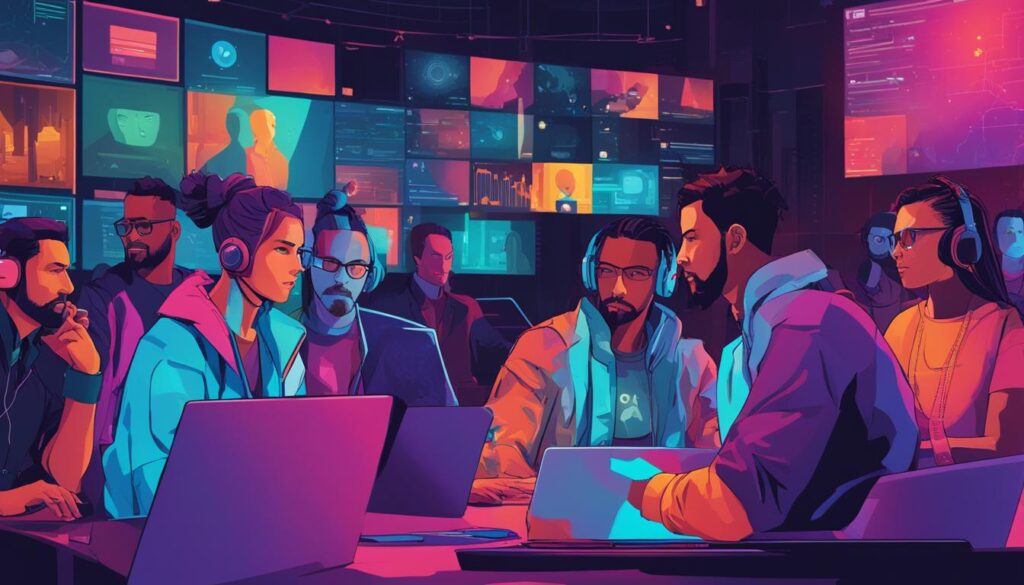
The Double-Edged Sword of Civic Innovations via Technology
While technology streamlines processes and empowers citizens in new ways, the scale can tip, allowing these same innovations to cause unforeseen societal harms. What are hailed as advancements can sometimes expose and exploit cracks in the fabric of society, leading to disparities and discord.
| Innovation | Positive Impact | Negative Fallout |
|---|---|---|
| Smart City Technologies | Improved urban efficiencies | Surveillance and privacy issues |
| Sharing Economy Platforms | Economic opportunity for gig workers | Erosion of traditional job security |
| Online Voting Systems | Accessible civic engagement | Security vulnerabilities |
As we forge ahead in this digital age, we must remain vigilant and thoughtful stewards of the tools we create and adopt. Our drive for innovation must be coupled with a mindfulness of the potential impact on social cohesion and the very social fabric we are trying to improve.
How Tech is Leaving Humanity Behind
In our quest to advance society, we’ve entered an era where artificial intelligence and machine learning have become cornerstones of innovation. The awe-inspiring capabilities of this technology strike a chord with our deepest aspirations to push the boundaries of what’s possible. We stand at a crossroads, determining how these technological marvels will shape the future of work and our collective existence.
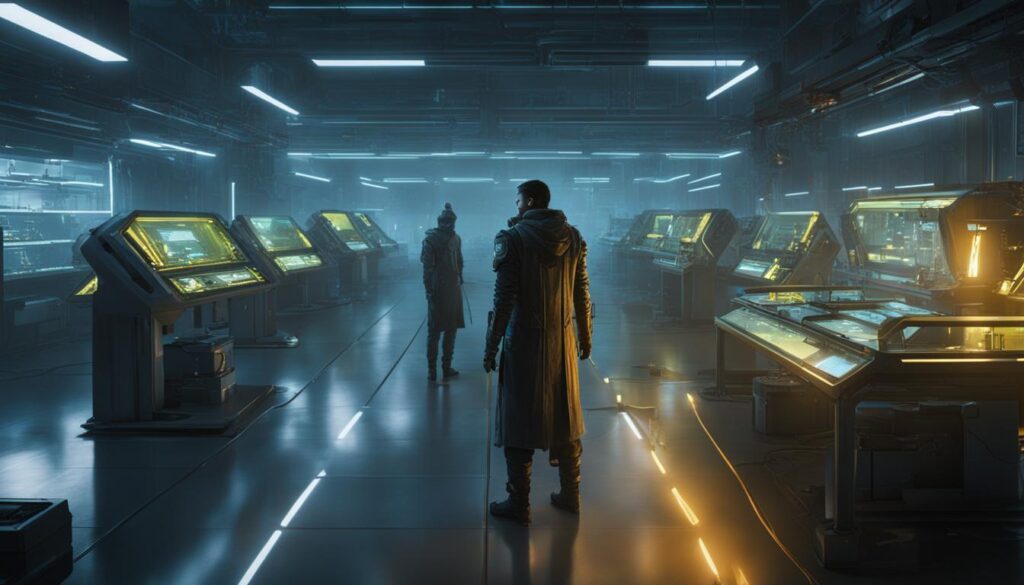
The Rise of AI and Machine Learning: Friend or Foe?
As we embrace artificial intelligence with open arms, we must ask ourselves whether it is indeed a friend that will propel us toward a utopian future or an adversary that may lead us down a path of skills obsolescence. The acceleration of AI-driven environments has pushed the boundaries of our cognitive landscapes, redefining the parameters of human-machine collaboration. This digital symbiosis, while opening new horizons, also amplifies our digital dependency, challenging us to remain relevant in a landscape that is increasingly autonomous.
From Skills to Algorithms: The Shift in Human Dependence
The metamorphosis from traditional proficiencies to algorithmically driven competence indicates a profound shift in how we define and value human labor. No longer are we solely reliant on manual dexterity or arithmetical prowess — we now live in an epoch where machines can learn, adapt, and outperform in tasks once thought to be the exclusive domain of human intellect. This seismic shift stands to redefine the core of our essence, potentially engendering a wave of obsolescence for skills that have formed the backbone of human contribution throughout history. We must reassess our position and adapt to this new reality, where our digital cohabitants not only complement but also compete with us for purpose and position.
As a society, we ought to reflect on these developments with both optimism and caution. It is incumbent upon us to ensure that the rise of these technologies enriches humanity rather than diminishes it. We are tasked with shaping a future that leverages the full potential of AI and machine learning without forfeiting the intrinsic values that define us as human beings. Thus, we continue the march towards progress, eyes wide open to the challenges and opportunities that lie ahead in this unprecedented technological landscape.
Facing the Storm: Technology’s Ethical and Social Repercussions
As we delve into the intricate web of technology’s advancement, we encounter a labyrinth of ethical implications and social impact that holds the capacity to either uphold or undermine the very essence of our society. It is within this digital expanse that digital platforms become a battleground for truth and deceit, where misinformation can flourish with alarming ease, and where privacy concerns are often sidelined in the rapid race for innovation.
Our commitment to progress should not come at the expense of our fundamental rights. To this end, we must formulate strategies that reinforce our values while continuing to embrace the benefits of technological growth. The time is now to cast a critical eye on the technologies we adopt, ensuring they enrich rather than diminish human dignity and democracy.
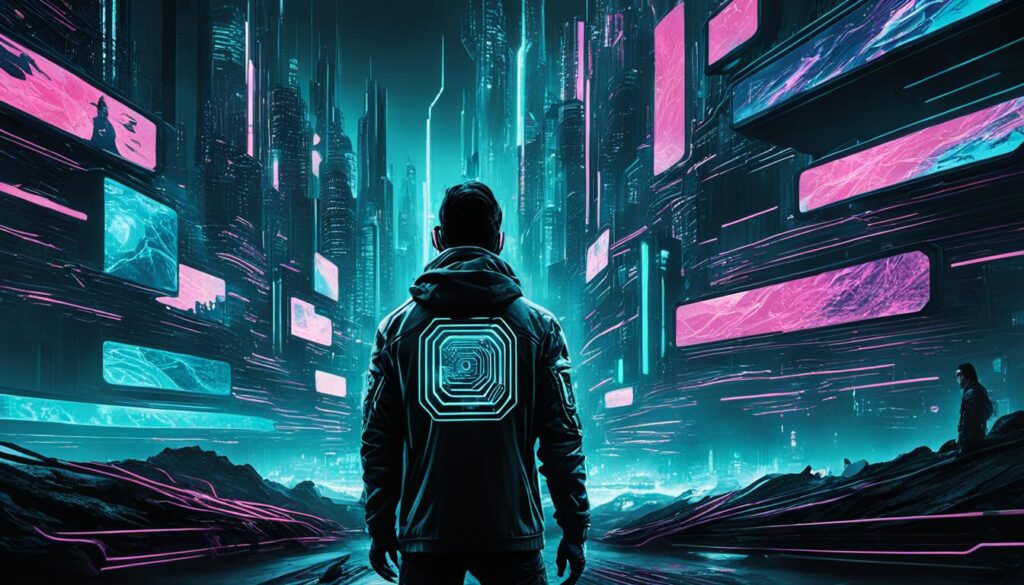
Consider the profound implications of AI-generated content: the concept of deepfakes takes misinformation to new, deeply unsettling levels. The tools designed to connect us can also be weaponized to distort our perception of reality, challenging the integrity of the information on which we base our decisions. Our response to these challenges will define not only the trajectory of our digital landscape but also the legacy of our generation.
As a society, we navigate the digital storm, tasked with discerning truth from falsehood, upholding our data sanctity, and securing the digital infrastructure on which our future depends. We carry the torch of innovation, yet we must guard its flame against the winds of manipulation and exploitation.
In the face of these growing concerns, we document the current ethical battlegrounds of our time:
| Issue | Current Status | Proposed Action |
|---|---|---|
| Combating Misinformation | Rampant spread on social media platforms | Implementation of stricter verification processes and fact-checking protocols |
| AI in Decision Making | Increasing reliance on algorithms | Calls for transparency and ethical AI frameworks |
| Data Privacy | Massive data breaches and surveillance | Enforcement of comprehensive data protection regulations |
| Corporate Accountability | Opaque practices with limited oversight | Advocacy for ethical corporate governance and consumer empowerment |
| Human Connection | Increasingly transactional and superficial interactions | Incentivizing the creation of platforms that foster meaningful engagement |
Candidly, it’s our collective responsibility to steer the course of technology in a direction that not only inspires awe for its capabilities but also fortifies our social fabric. We stand on the cusp of profound change, where the actions we take today will resonate through the ages. Let us commit to a future where digital platforms are designed with ethical foresight, where information is met with discernment, and where privacy is respected as a cornerstone of our digital rights.
Conclusion
As we stand at the intersection of innovation and ethics, it is paramount for us to ignite a collective understanding that embraces human empowerment. The digital age has brought us to a critical point where tech moderation is not just a desirable trait but an essential commitment. We must ensure that technology’s pervasive nature doesn’t overshadow our humanity but instead augments our ability to thrive as a society. This necessitates a symbiotic relationship that fosters not just economic growth, but births a new era that marries technological prowess with the depth of human values.
Reclaiming Our Human Focus in an Era of Tech Dominance
The concept of ‘human downgrading’ is an unequivocal sign that we must rally around a shared language that puts people at the center of our technologically-drenched dialogue. By recognizing the ways in which technology can impair our focus, we can redirect our trajectory toward one that amplifies our collective strengths and nurtures our shared aspirations. Our resolve to place human experience and well-being at the forefront is the lighthouse guiding us through the fog of relentless digital progress.
Constructing a Future Where Technology and Humanity Coexist
As visionaries and stakeholders in this tumultuous venture, we bear the responsibility to construct a future where the power of tech is wielded for the common good. It is within our grasp to use these tools not as crutches but as wings, to elevate our capabilities and celebrate the essence of what makes us human — empathy, creativity, and connection. Let us commit ourselves to the journey towards a harmonious future, where technology acts as a catalyst for human advancement, empowering each life it touches. Together, we can craft a reality where the digital and the human dance in graceful, productive harmony.
FAQ
How is technological advancement impacting the future of humanity?
Technological advancements, while enhancing our abilities in many aspects, are increasingly leaving parts of humanity behind. The rapid pace of the digital revolution often neglects social impact, exacerbating tech dependency and creating economic disparities that jeopardize the essence of our shared human experience.
What is the “Mindset” of tech billionaires regarding the future, and how does it affect societal balance?
The “Mindset” among many in the tech elite is marked by apocalyptic preparation and a turn towards technological isolation. Billionaires are focusing on radical tech escapism, like space exploration and digital realities, rather than using their resources to address pressing global challenges. This shift has profound effects on economic disparity and highlights a growing gap between the wealthy and the rest of society.
Can technology truly benefit civic innovation without harming social cohesion?
Technology has the potential to significantly benefit civic innovation; however, its applications often disrupt social cohesion. The key is to develop technology that upholds the fabric of community and civic life, bridging the digital divide rather than exacerbating it. It’s a delicate balance between leveraging digital life for societal benefits while preventing community disconnect and societal harms.
Are AI and machine learning developing in a way that serves humanity, or are they becoming a threat to our workforce?
AI and machine learning are double-edged swords. They possess the capacity to serve humanity by optimizing efficiency and ushering in new innovations but also represent a potential threat to the workforce by rendering certain skills obsolete. The challenge is to ensure these technologies augment human capability without undermining the value of human expertise.
How is our growing digital dependency shifting the landscape of employment and skills?
The transition from a skill-based economy to one reliant on algorithms is redefining the concept of work and posing a threat to traditional employment. While efficiency and productivity may increase, there is a concern that digital dependency may lead to skills obsolescence, challenging human adaptability in the future of work.
What are the ethical implications and social repercussions of unchecked technology use?
Unchecked technology use leads to a myriad of ethical implications, including privacy concerns, the spread of misinformation on digital platforms, and an overall social impact that often goes under-regulated. The pervasive use of technology necessitates that we actively seek out equitable solutions that prioritize the well-being of society as a whole.
In what ways can we reclaim a focus on human values in the face of growing tech influence?
We can reclaim our focus on human values through conscious effort, tech moderation, and by fostering collective understanding and a shared language around the implications of technology. It is critical to develop strategies that harness technological power for the common good, promoting human empowerment and ensuring it doesn’t detract from our intrinsic human qualities.
How can we construct a future where technology and humanity coexist for mutual enhancement?
Constructing a future where technology and humanity coexist in a symbiotic relationship requires us to emphasize a balance that benefits both. This involves integrating technology in ways that advance human development without compromising our core values and ensuring that the march of progress is coupled with a keen regard for the ethical dimensions of innovation.
